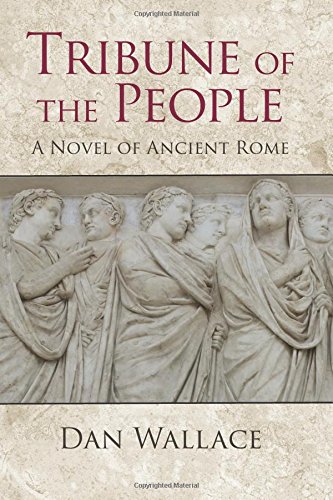Tribune of the People
The century before the emergence of Julius Caesar saw the Roman Republic devolve into a kleptocracy where a handful of wealthy senators, using dubious legal means, usurped the farm lands originally granted to Rome’s military veterans for their service to the country. These veterans and their families then became homeless, wandering the countryside devoid of any means to care for themselves or their families. The tale of the Grachii brothers who rose up from the Plebeian ranks to challenge these injustices is one of history’s great human, and political, stories. Wallace’s novel focuses on the oldest of the Grachii, Tiberius, telling his story from the final battle at Carthage, in 149-146 B.C., through his election as first Tribune of the people, to his efforts to enact a land reform law that would restore the farm lands to the military veterans and their families, to his assassination by the “Optimatii.” This is a most timely novel eerily echoed by the current political situation in the U.S., where a couple of political “outsiders” are championing the “disadvantaged” (those who have lost jobs due to political decisions by fat cats in Washington) in order to challenge “the establishment.”
I found the characters to be engaging and well-formed and the story well told. The novel gives you a feel for ancient Rome in the last years of the Republic. The main complaint I had was the plethora of Latin names thrown at the reader right from the beginning. A dramatis personae and/or a couple of family trees for leading characters would have been most welcome, as would a couple of maps for the action that takes place in northern Italy and in Spain, not to mention Asia Minor.










